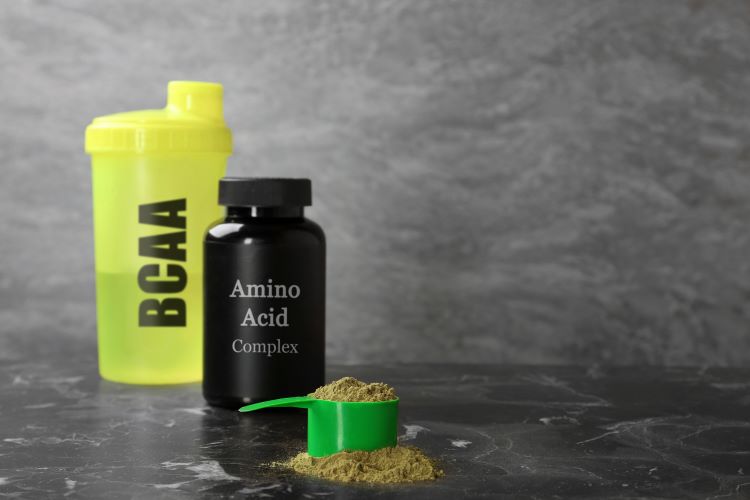If you take supplements to improve your health and physical fitness, you’ll likely have come across the term ‘branched-chain amino acids’. But what are the main benefits of BCAAs?
Our nutrition expert Rob Hobson gives us the lowdown on the benefits of BCAAs, one of the best supplements for muscle growth – from increasing strength gains to reducing training fatigue…
There are 21 amino acids that your body uses to make proteins. Eleven of these amino acids are essential because they can only be obtained through your diet. Three of these are branched-chain amino acids (BCAAs): leucine, isoleucine and valine.
These amino acids have always been prevalent within the fitness community. They are often consumed in supplement form to improve performance and recovery. Still, there are also many unfounded claims made against them.
Here are four proven health benefits of BCAAs:
Increased muscle growth
The essential amino acid leucine is required to trigger muscle protein synthesis. The recommended amount of leucine is 2-3g. It appears more effective for muscle growth when consumed with all the essential amino acids in whey protein powders and other complete proteins such as fish, meat and eggs.
Decreased muscle soreness
Some research suggests that BCAAs help reduce muscle soreness after exercise (DOMS), supporting recovery. The exact cause of DOMS is not fully understood. Still, it’s thought that it may result from tiny tears in the muscle or be related to the connective tissue associated with the muscle. Research published in Physical Activity and Nutrition shows that BCAAs decrease protein breakdown during exercise and creatine kinase levels, indicating muscle damage.
Reduce training fatigue
When you exercise, your muscles use BCAAs, reducing levels in the blood. This triggers an increased uptake of tryptophan to the brain, converted to serotonin, a neurotransmitter thought to contribute to fatigue development during exercise. Studies of athletes have shown that consuming BCAAs during exercise lowers the tryptophan-to-BCAA ratio, helping to improve athletic performance.
Prevention of muscle wastage
Muscle protein is continually broken down and rebuilt. Wastage can occur when breakdown exceeds muscle protein synthesis, which may arise due to illness, over-training and under-fuelling. Thirty-five per cent of the essential amino acids in muscle proteins are BCAAs. Consuming BCAAs and other essential amino acids during and after exercise may help to prevent muscle wastage.







